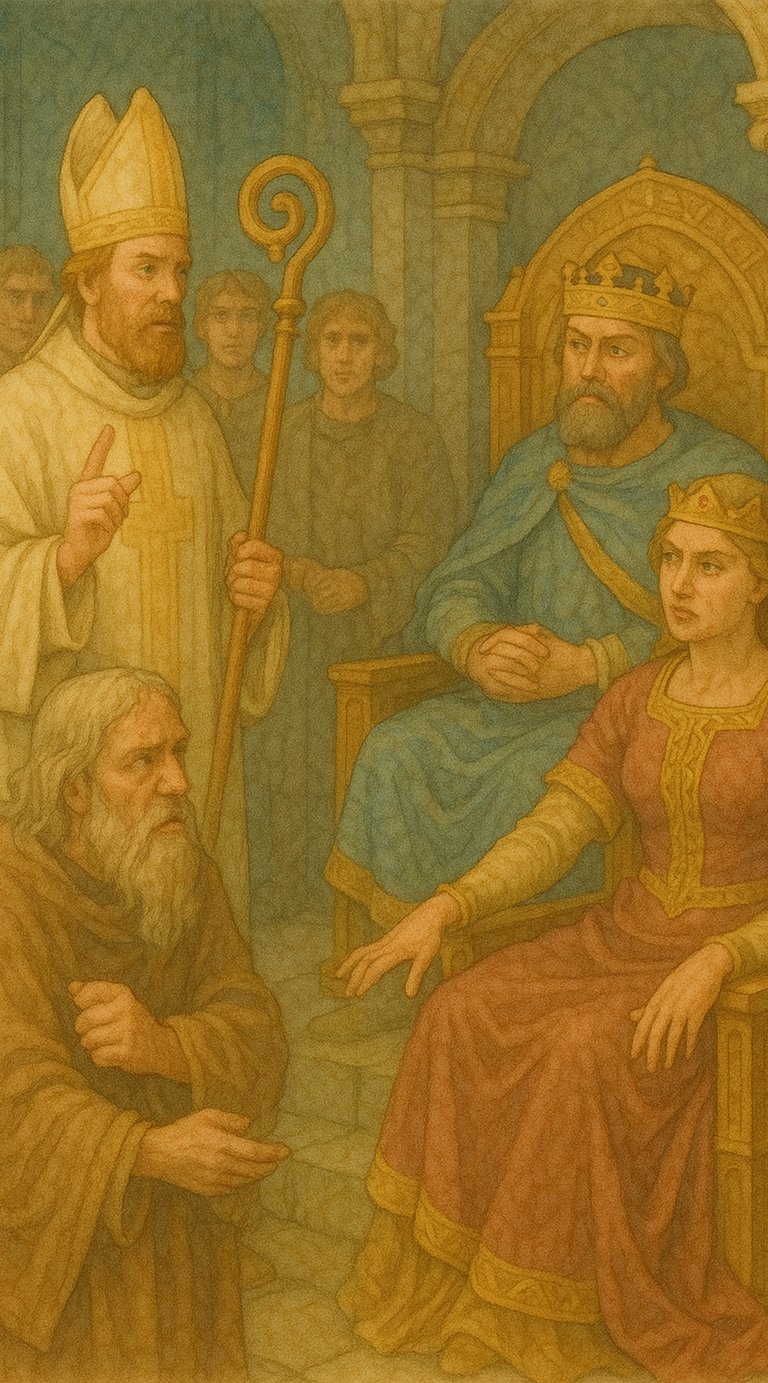St. Frederick of Utrecht
Bishop, Martyr, and the Cost of Truth
Halo & Light Studios
7/17/20252 min read


Click Link for a reel of Daily Dose of Saints and Faithful Art:
https://youtube.com/shorts/HoCsKCiFPlo
In the early 9th century, as the embers of Charlemagne’s reign cooled, the Church in northern Europe faced new trials—not from foreign invaders or heretics, but from within. Amid this tension stood St. Frederick of Utrecht—a bishop whose quiet fidelity to truth would cost him his life.
Born in Friesland (modern-day northern Netherlands), Frederick came from a noble Frisian family and received his formation under the clergy of Utrecht, one of the earliest Christian centers in the region. Ordained by Bishop Ricfried, he gained a reputation for deep learning, pastoral clarity, and missionary zeal.
In 825, he was consecrated bishop of Utrecht in the presence of Emperor Louis the Pious, Charlemagne’s son. The Church was undergoing reform under the Carolingians—standardizing liturgy, disciplining clergy, and expanding missionary efforts. Frederick was entrusted with a grave task: to root out the last remnants of idolatry in Friesland, a region where Christianity remained fragile.
He sent laborers to preach Christ among the Frisians and personally journeyed to the island of Walcheren—a coastal stronghold known for its pagan rites and incestuous unions. It was here, after offering the Holy Eucharist, that he was stabbed by two men, likely hired assassins. Though their names were never revealed, many suspected the attack had deeper roots.
Back in the royal court, Empress Judith of Bavaria, the young and politically ambitious second wife of Louis the Pious, had come under criticism for her scandalous conduct and her manipulation of court affairs to secure inheritance for her son, Charles the Bald. Frederick, unflinching in his episcopal duty, rebuked her. It may have cost him his life.
What is Moral Courage?
Moral courage is not bravado—it is the grace to remain faithful to truth, even when it threatens your safety, your reputation, or your standing. St. Frederick didn’t go looking for a fight. He was a teacher, a shepherd, a man of peace. But when sin confronted him—whether in a pagan village or an imperial palace—he stood firm.
In a world that celebrates silence over virtue, we need Catholics with backbones and hearts. St. Paul commands: “Preach the word; be ready in season and out of season; reprove, rebuke, and exhort, with all patience and teaching” (2 Tim. 4:2).
St. Frederick died for that command.
No signs and wonders followed him. No thunderous miracles mark his legacy. Only the blood of a faithful bishop who preferred martyrdom to moral compromise.
St. Frederick of Utrecht, fearless shepherd and lover of truth—pray for us.
